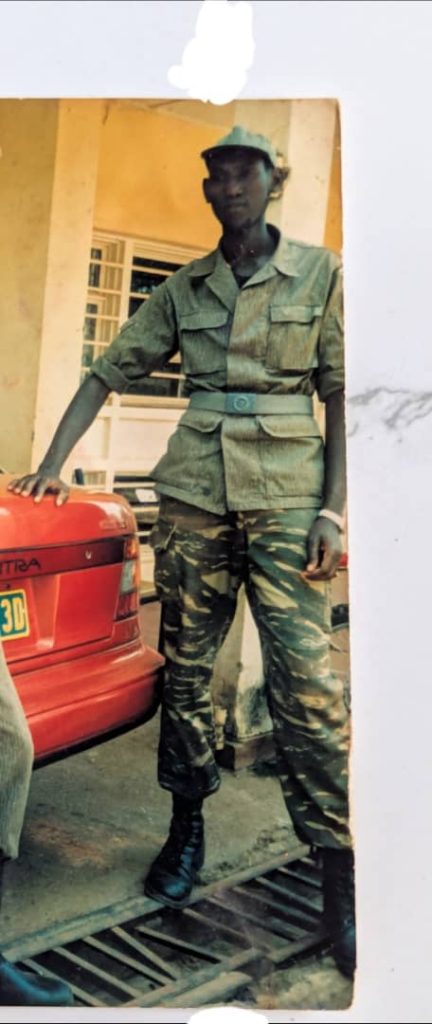Every year on July 4, Rwanda pauses to commemorate Liberation Day, a profound moment that marks the end of the 1994 Genocide against the Tutsi and the rebirth of a nation. But beyond the national ceremonies and historical accounts, this day is deeply personal for individuals like Nyiriminega Céleste, whose life story as a former soldier of the liberation army is interwoven with the very fabric of Rwanda’s journey from darkness to hope.
Céleste remembers the struggle vividly. “What happened was a real struggle, but it was one of truth and hope,” he recounts, his voice carrying the weight of history. “We had one goal: to bring the country out of the darkness of discrimination and injustice.”
His words paint a picture of a generation driven by an unyielding spirit. In 1994, Rwanda plunged into its darkest hour, as the genocide against the Tutsi brutally claimed over a million lives in just three months. While the world stood by in silence, it was the Rwandan Patriotic Front (RPF-Inkotanyi), under the command of Paul Kagame, that stepped in.

Though their armed struggle began in 1990, it was during those horrific months of genocide that they acted decisively, rescuing thousands and pushing back the genocidal regime. On July 4, 1994, the RPF successfully captured the capital city, Kigali, officially bringing the genocide to an end.
For Céleste and many like him, this victory was more than a military triumph; it was a moral imperative. “We were young, we had patriotism and the courage to face injustice, regardless of the consequences,” he asserts. “We were hurt, but we were determined to change history.” The RPF’s fighters, many of whom were children of Rwandan refugees who had lived in exile for decades, chose to prioritize humanity and dignity over retribution.
“We fought, some died, others were injured, but we won,” Céleste reflects on the immense sacrifices made. “Now the country has peace and direction. What we fought for is what the country is reaping today. What happened is not just about the sword; it is also a history of courage, love, and sacrifice.”
Today, Liberation Day is a vibrant celebration of Rwanda’s resilience and transformation. It is a time for Rwandans, both at home and abroad, to honor this day as a symbol of national rebirth, reflecting on the arduous journey and paying tribute to those who sacrificed their lives for a peaceful, unified, and forward-looking nation.
A message for the younger generation
Drawing from his lived experience, Nyiriminega Céleste offers profound advice to young people, urging them to carry forward the torch of liberation. He advises them to remember that the history of this country is built on courage, love, and hope, and to be courageous in thought and action, upholding the values of truth, integrity, and patriotism.
He stresses that they should not forget that the peace and rights they enjoy today are the result of immense sacrifices, and to learn from history, being guided by it in striving for a better country, characterized by justice and unity.
Céleste also urges them not to accept injustice or discrimination wherever it occurs, even if it is hidden in speech or behavior. Furthermore, he encourages them to learn, work hard, and prioritize unity and shared development for all, and to have a vision, not being youth who wait for solutions, but youth who actively provide them.
